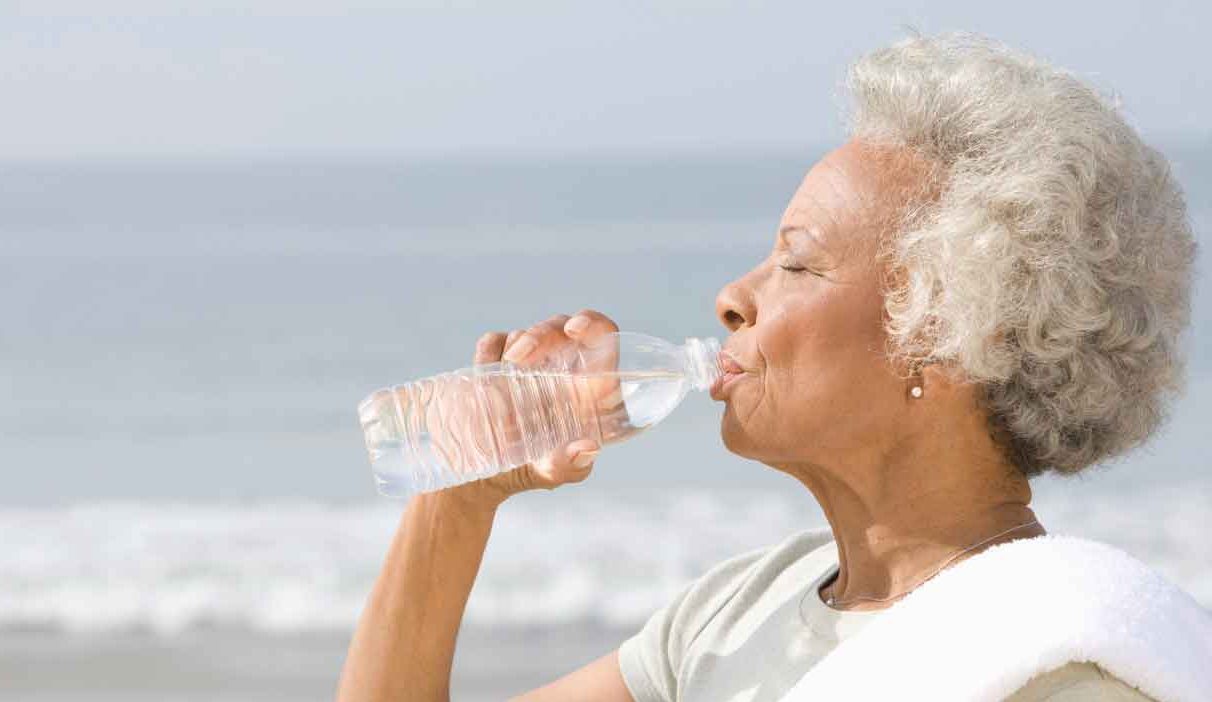Why Drinking Water Is Important for Seniors

Wondering about the importance of hydration in seniors? If they don't drink enough water, their brains lose a signal that tells them they need fluids.
Only about half of Americans drink enough water per day, and seniors are even worse, says the Centers for Disease Control and Prevention (CDC).
Forty-three percent of adults drink less than four cups of water a day. Only 36 percent drink one to three cups, and 7 percent drink none, adds the CDC.
YOU MIGHT ALSO LIKE: Exercise Slows Aging
The importance of hydration for seniors
Most seniors probably drink even less on average because you lose your ability to know when you’re thirsty as you get older because of changes in your brain.
In addition, you may take medications like diuretics and laxatives that lead to dehydration. Or, you have limited mobility that keeps you from the simple task of reaching for a glass or cup.
You may even suffer from urinary incontinence, which is more common in seniors, and that makes you unwilling to drink out of fear of going to the bathroom too often. It also contributes to seniors feeling as though they’re a burden to the point that they won’t drink fluids.
“From a physiological standpoint, as aging occurs, the water content of our bodies decreases,” Kelly O’Connor, RD, of Mercy Medical Center in Baltimore, tells Today’s Geriatric Medicine. “Research indicates the total body water content of a 75- to 80-year-old person is nearly 50 percent less than a young person. For some reason not yet clear, the decline in water content is even greater in elderly women.”
Dehydration can lead to a compromised immune system, constipation, and even death since the organs are mostly water,” adds Rebecca Scritchfield, MA, RD, a nutrition and exercise expert specializing in healthy weight management.
She says organs pull water from the brain, shrinking it and causing headaches. Chronic, persistent dehydration, she says, leads to cell death and, without proper rehydration, tissue death.
Dehydration in the elderly: signs and symptoms
Signs that you’re dehydrated include weakness, leg cramps, fatigue, confusion, decreased skin turgor (elasticity), rough, dry or coated tongue, fever, weight loss, restlessness, and agitation.
Hydration tips for seniors
- Keep water accessible
- Try foods with high water content
- Educate seniors to drink even when they aren't thirsty
- Mix up the beverages to keep things fresh
- Aviod diaretic drinks to keep seniors hydrated longer.
If you don’t like to drink water, remember there are many sources of liquids to choose from. Coffee, tea, fruit juice, sweetened beverages, fruits, and vegetables all contain water.
If you’re taking care of a senior who really hates drinking water, serve him more foods with high water content to increase his hydration, advises Daily Caring.
Other ideas include keeping a pitcher of water near a favorite seat where he can reach it, experimenting with beverages at different temperatures, trying something savory like soup broth, giving him popsicles made from fruit juice or other sweet liquid, and offering smoothies, milkshakes, and sports drinks.
You should also encourage seniors to drink small amounts of fluids throughout the day to make it easier. A lot of sips add up if you drink from a water bottle all day long.
YOU MIGHT ALSO LIKE: Doctors Should Reduce Some Medicines in Seniors
Updated:
April 07, 2020
Reviewed By:
Janet O’Dell, RN